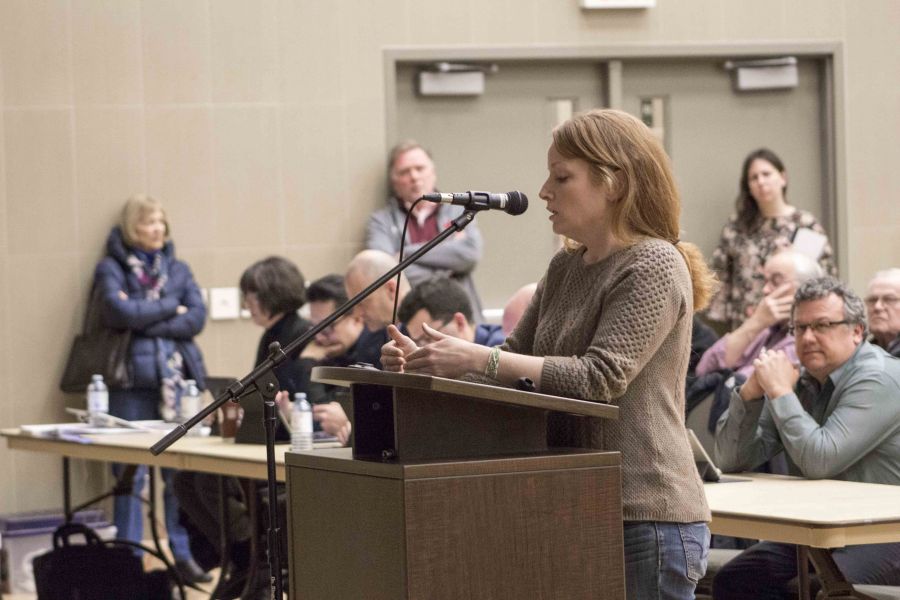Before Niagara-on-the-Lake council agrees to the town becoming a Bee City, a designation that means it supports pollinator gardens, the town's agricultural committee is planning to host a discussion with crop specialists and bee keepers.
When Renee Delaney asked NOTL councillors in April to allow the municipality to adopt the designation of a Bee City, she was the victim of unfortunate timing – she was on the council agenda to speak at the community centre the same night a crowd in the packed auditorium was there to speak about the Randwood Estate hotel development. It was a tense meeting, with heckling from frustrated audience members waiting to hear the Randwood discussion, but Delaney completed her presentation and hoped for a positive response.
Councillors decided to ask the Town's Communities in Bloom and agricultural committees to report on it.
Although other communities such as Niagara Falls and St. Catharines in Niagara and about 20 municipalities across Canada have made the decision to become Bee Cities, it's a subject of great interest to farmers and the agricultural community, said Coun. Betty Disero, and a decision requires input from those most affected.
The Communities in Bloom committee, which she chairs, is supportive of pollinator gardens and has already partnered with other community groups to plant several around town, said Disero. St. Davids, Newark Park, the William-Nassau Street Park, and a beautiful space at the corner of John and King Streets all have gardens planted through the work of an extensive list of partners and contributors, with a long list of plants that provide a habitat for bees as well as other beneficial insects and birds
The agricultural committee has recommended an open education forum with Kevin Kerr – a private crop specialist; Wendy McFaddenSmith – a horticulture specialist from the Ministry of Agriculture, Food and Rural Affairs; Delaney, and local bee keepers, to be organized by Dennis Dick, chair of the Town's agricultural committee.
“We're supportive of assisting in any way we can,” said Disero, chair of the Communities in Bloom committee. “It's a bigger issue for the agricultural committee and they need the opportunity to go through that process.”
Farmers care about bees – they are essential to their industry, said Disero – as are pesticides, and the farming community will have the opportunity to discuss both and use the forum as a way to teach the public about what they do and why they do it.
Although Delaney was at council to talk about Bee City, a national organization, locally she spearheads Small Scale Farms, a collective of Niagara growers with a goal of creating a sustainable food system in Niagara. The group looks after nine gardens and partners with growers who provide produce for a local food project. Each small-scale farm is a pollinator garden, she said, and while she has her own ideas about the use of pesticides, which she points out kill all insects, including bees, banning or even addressing the use of pesticides is not the mandate of Bee City Canada – nor was she asking for that discussion.
“We're not asking for a ban on anything. That's not now nor ever was a part of this at all. We're asking for more native plants to support pollinators, and for municipalities to have any strategy in place at all that will provide a platform to have a conversation about pollinators.”
She believes municipalities who adopt the Bee City title help spread a positive message that educates people and encourages behaviour that supports bees – a simple request, she says.
“It shouldn't be seen as a threat to farmers at all. We just want to celebrate pollinators and to get city councils behind education about bees. It's about supporting an organization on the ground that is trying to do good.”
If the Town goes ahead with an open forum to talk about bees, she said, she'd be happy to participate.










